If you’re a professional tradesman, the power tools of the trade are how you make your living. They also represent one of your largest expenses! Of course, this also holds true in the garage or workshop for the DIYer or hobbyist. Knowing how to care for power tools properly helps you improve both the safety and longevity of these moneymakers. We gathered several key tips from our Pro reviewers and staff.
Where Do You Store Your Tools?
It’s unlikely that your power tools are stored in an air-conditioned space. That means they can be exposed to humidity. This isn’t good for the metal components. The best place for a tool is in its original case. Of course, it’s not always convenient to “unpack” each time you want to use it. Keep your storage area as dry as possible, and consider placing some moisture-absorbing containers nearby. You can place these on the shelves or in the cupboards where your tools reside.
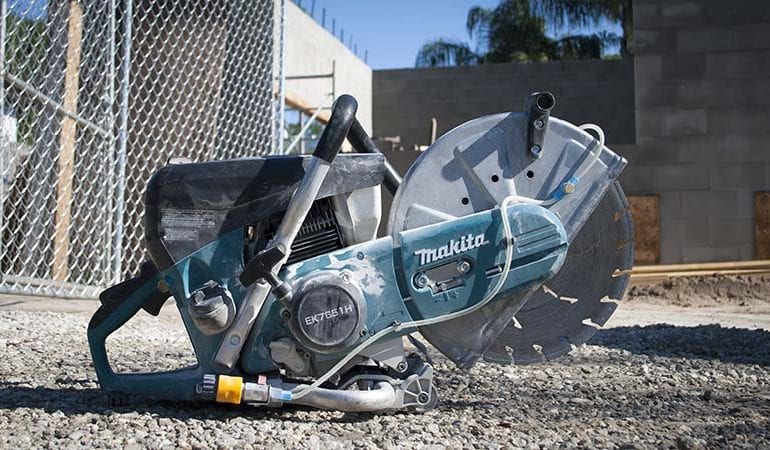
Heat Kills Batteries
For cordless power tools, heat really kills lithium-ion batteries. Taking good and proper care of your power tools also means caring for the batteries. When possible, ensure batteries are stored and charged at room temperature. If you don’t, the life expectancy of your batteries diminishes more rapidly. Heat is the enemy of lithium-ion, so anything you can do to mitigate heat helps prolong the life of these expensive components. With batteries costing upwards of $100 or more, you really want to take this to heart.
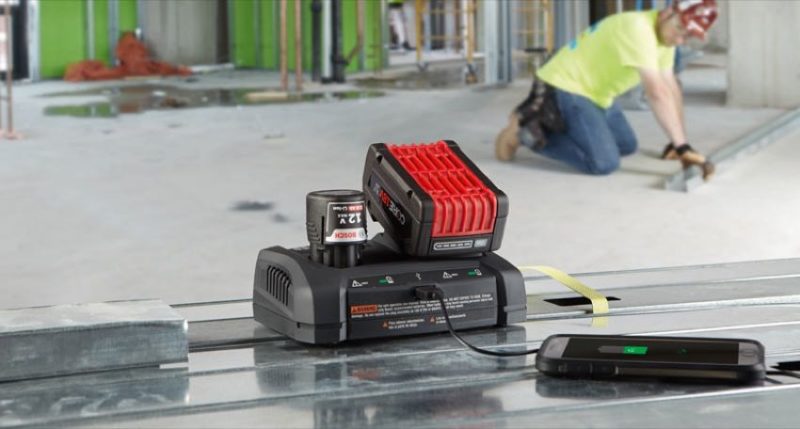
Inspect, Sharpen, and Prepare
Giving your tools a close inspection to make sure they’re in proper working order also makes good sense. Ensure all blades remain sharp and aligned if applicable. Dull blades and bits cause the motor to have to work much harder. It also generates more heat which can be conducted back to the motor.
No copper wires should be exposed on your corded tools. Confirm there are no cracks in the tool housing. When using battery-powered tools, check the condition of the batteries. You also want a regular system for recharging batteries at the end of the workday. That way, they’re ready when we need them.
See our article on 6 Quick Home Workshop Hacks.
Keep Your Tools Clean
The job really isn’t done until the tool is clean and ready for its next task. This is where the rubber meets the road of power tool care. It doesn’t matter if your tool looks dirty. But you do want to blow or wipe off dirt and dust that can cause premature wear and failure. That includes dirt, grass, metal shavings, and other contaminants that might get into the motor or other moving parts.
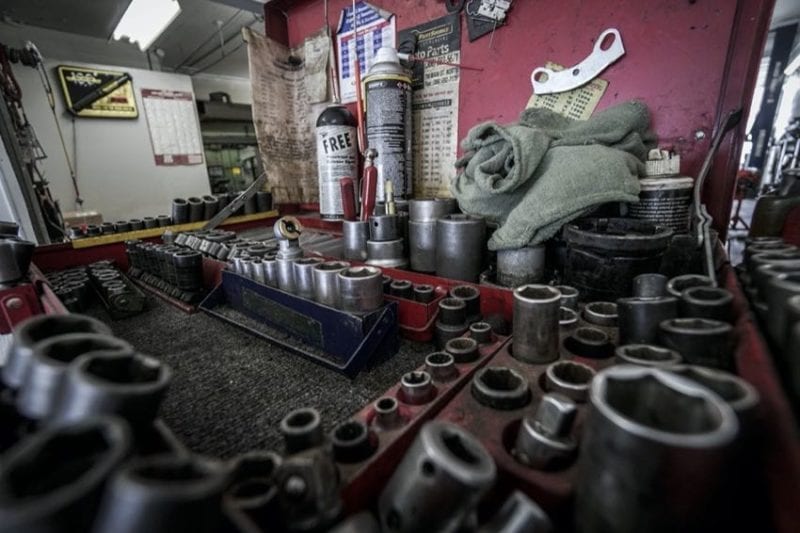
One of our reviewers uses a Senco PC0968 air compressor to blow out tools when they come in. Any air compressor will do. Also be sure to lubricate moving parts as advised by the manufacturer (Now, where’s that user manual?).
Pay Attention!
One of the things that can help you prevent catastrophic tool failure is simply paying attention. Is a tool creating more vibration than normal? Is it running hotter than you remember? Signs like these can clue you in that something needs maintenance or cleaning.
On the other hand, if a tool like a saw or a grinder doesn’t seem to be operating at its full potential—you may need to replace the motor brushes and springs. This relatively simple fix can get that tool back into top working condition and even prevent damage to the commutator.
Maintenance Schedules
Some tools, like measurement equipment and many 2-cycle and 4-cycle products, need regularly scheduled maintenance. We recommend putting this on the calendar—preferably during your downtime. Keeping up with a maintenance schedule can aid in making sure you don’t spend unnecessarily on repairs that could have been prevented. In this case, an ounce of prevention truly is worth a pound of cure.
Power cutters, mowers, chainsaws, and other tools need regular care and maintenance (not to mention proper winterization) to keep them ready for service each season.
Your Tips About How to Care for Power Tools
We hope you find these ideas on how to care for power tools useful! If you’re a Pro, and you have a tip on how to care for power tools, add it in the comments below.

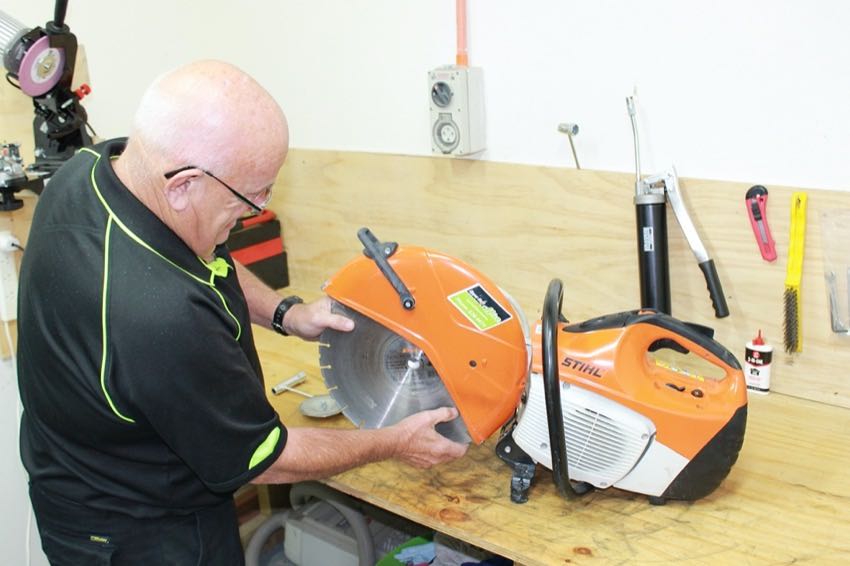
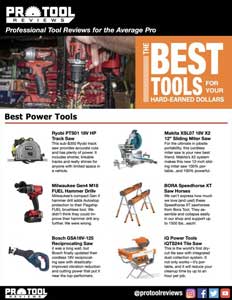

I have a n old skil 3375 bench sander that has served me very well for more than 20 years. Quarantined at home I am in the middle of a project and it is complaining quite a bit. I believe it may need lubrication which it has never received. I know: bad girl!!!
Can someone please advise what is the best lubricant and where the portals may be?
I was hoping to see something in here on cordless tool battery storage/maintenance. My garage is not well insulated and though I live in a dry climate, I do get some pretty extreme temperatures throughout the year. Does it shorten my battery life to keep them in the garage? Any tips to store the batteries that doesn’t involve carting them into the house every evening during the winter?